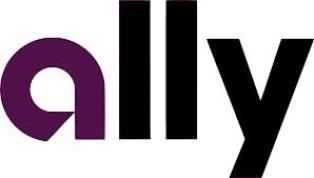The Ally IPO got off to a weak start today (Thursday), when shares of Ally Financial Inc. (NYSE: ALLY) dipped 4% in the company's public debut.
On Thursday morning, ALLY shares opened at $24.25 - 3% lower than the stock's offer price of $25. That offer price came in at the low end of Ally's projected range of $25 to $28.
In the afternoon, ALLY traded as low as $24 - more than 4% below its offer price.
 In today's deal, Ally raised nearly $2.38 billion by offering 95 million shares. While that makes it the largest U.S. IPO of 2014 so far, it still registers as a disappointment. The company was projected to raise $2.5 billion.
In today's deal, Ally raised nearly $2.38 billion by offering 95 million shares. While that makes it the largest U.S. IPO of 2014 so far, it still registers as a disappointment. The company was projected to raise $2.5 billion.
Ally Financial is a Detroit-based auto-loan provider and is a former subsidiary of General Motors Co. (NYSE: GM). Ally was the recipient of a federal government bailout in 2008, and all the shares offered in today's IPO belonged to the U.S. Department of the Treasury. Ally Financial did not profit from the deal.
The U.S. Treasury Department sold 20% of its stake in Ally Financial and now owns just a 17% stake in the auto lender. Following the 2008 bailout, the Treasury Department owned as much as 74% of the company, then known as General Motors Acceptance Corp. (GMAC).
"With this offering, taxpayers have now recovered more than they invested in Ally," Treasury Undersecretary Mary Miller said in a statement today.
Through the Troubled Asset Relief Program (TARP), the U.S. government provided Ally with a $17.2 billion bailout. Ally has already paid back about $15.3 billion of that total, so today's $2.38 billion IPO covers the rest of the money taxpayers had initially doled out.
Ally may be out from underneath its bailout debt, but there are still some troubling issues surrounding ALLY stock moving forward...
Why Ally (NYSE: ALLY) Stock Is a Bad Bet
Slipping more than 4% in its debut was bad enough for investors, but it's just the start of ALLY's worries.
First, ALLY reported a net profit of just $416 million in 2013, which was a 70% drop from the previous year. The company has cut back on its lending services and has focused primarily on auto lending since the financial crisis. It was once heavily involved in the mortgage business as well.
While cutting back on services partially explains the dip in profit, a drop that stark is concerning, even if the company is scaling back.
Another concerning factor is Ally's association with General Motors. While it is no longer a subsidiary of the company, it still carries the stigma associated with the $17.2 billion bailout. No stock wants to carry the reputation of having borrowed billions from taxpayers.
And that GM association has become worse lately as the automaker faces a massive 2.6 million vehicle recall of its Chevrolet brand vehicles.
But perhaps the most telling reason to avoid ALLY stock is the IPO itself. As mentioned, ALLY is not profiting from the deal at all, as the U.S. Treasury Department is selling its shares.
Typically, companies use IPOs to raise funds in order to strengthen their businesses. Whether it's making acquisitions, hiring additional employees, developing new business models, or simply saving for the future, IPOs allow companies to strengthen themselves. All the ALLY IPO does is pay back part of a massive debt from 2008.
Money Morning's Capital Wave Strategist Shah Gilani recently urged investors to stay away from ALLY stock. Its subprime loan business is what concerns Gilani the most, as that was one of the major reasons the company needed a bailout in the first place.
"I can't believe the U.S. government wants to unleash this on the public," Gilani said. "[Ally] imploded mostly because its subprime unit, Residential Capital LLC, sunk the company. This time Ally is playing the game with subprime auto loans."
"Most of Ally's loan book is auto loans. And most of those are probably subprime. We'll see how much of their book is autos and how much is subprime when we get a look at their S1 IPO filing documents," Gilani said.
Were you in on the ALLY IPO? What other upcoming IPOs do you have your eye on? Let us know on Twitter @moneymorning using #IPOs.
This has been the busiest IPO market in more than a decade, but not all of them are winners. Here's how you can find the true winners in the IPO market...
Related Articles:
- The Wall Street Journal:
ALLY Financial Opens Lower in Trading Debut - Bloomberg:
Ally Financial Drops After IPO Prices at Low End of Range - The New York Times:
As Ally Prepares for Offering, Government Cuts Stake


